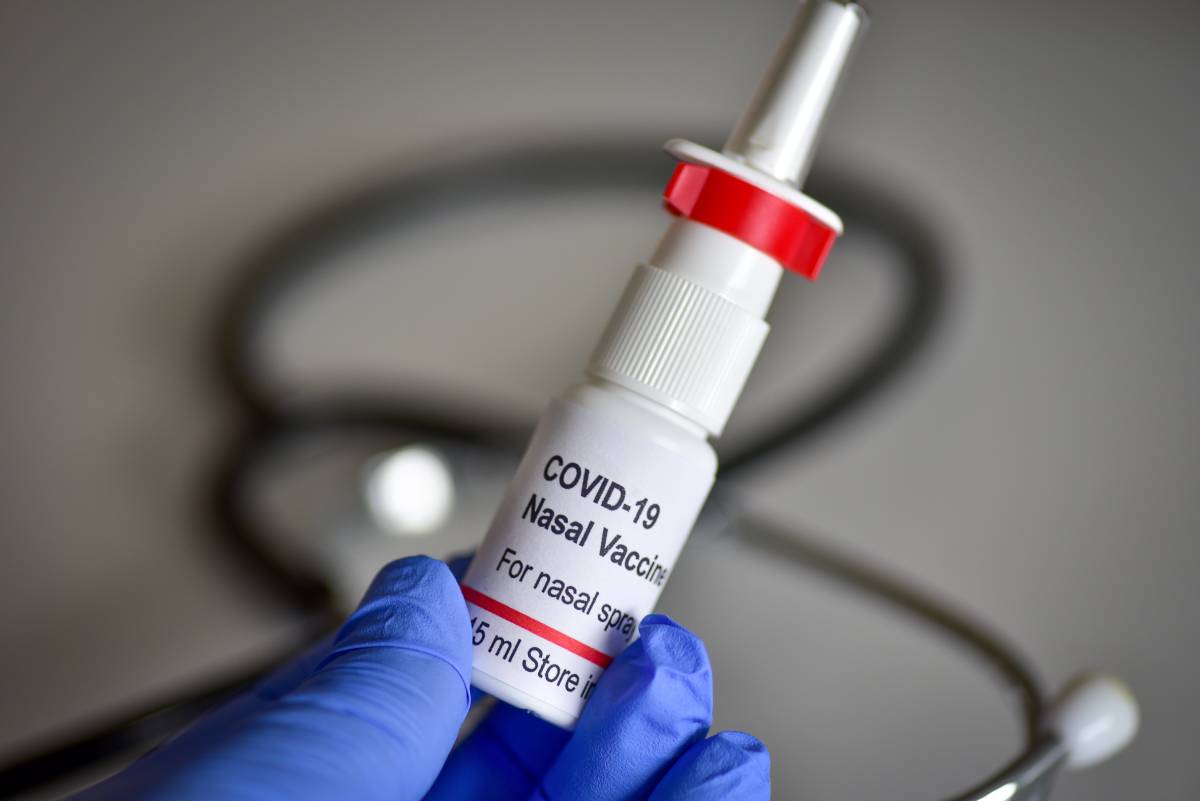Nasal and oral Covid vaccines may be more effective at preventing infection and transmission of COVID-19 than injected vaccines (6). As COVID-19 cases and hospitalizations surge once again, researchers continue to develop new technologies to help curb the pandemic and lower the incidence of long-term, negative consequences of infection—including Long Covid. A promising avenue of research is nasal and oral vaccines, and scientists in multiple countries are investigating the feasibility and efficacy of such vaccines. However, they have yet to become available in the United States (4). A lack of funding, little available data, and a decrease in the sense of public urgency is delaying the development of nasal and oral Covid vaccines nationally.
mRNA vaccines that are injected intramuscularly work by creating systemic immunity (2). These vaccines train the body’s immune system to recognize and inactivate foreign invaders that circulate through the blood, strengthening the body’s ability to fight back when a viral infection occurs. However, mRNA vaccines are less effective at preventing infection itself, since viruses need to travel into the blood in order to trigger an immune response, passing through other tissues first (2).
If they are able to better prevent infection, nasal and oral vaccines—also known as mucosal vaccines—may outperform traditional, injected vaccines. This is because nasal and oral vaccines strengthen immunity in the mucosal tissues in the nose, throat, and lungs—the site where SARS-CoV-2 first infects the body and begins to replicate (4). Oral vaccines could also activate immune cells in the gut, which would then trigger an immune response through the upper respiratory system (6).
In the fall of 2022, nasal Covid vaccines were approved for use in India and China (6). However, manufacturers in these countries have yet to release large-scale data that evidences these vaccines’ efficacy (6). Nationally, one promising candidate for a mucosal COVID-19 vaccine is currently being developed by immunologist Professor Akiko Iwasaki and her colleagues at Yale University (4). Iwasaki’s research suggests that a combination of the primary series of mRNA vaccines and a nasal Covid vaccine booster could be the most effective method for preventing infection and moderate to severe illness (2).
However, mucosal vaccines have much less precedent in medical history compared to intramuscular vaccines; the only two notable examples are the oral polio vaccine and the nasal spray for flu (6). Consequently, researchers have little previous scientific knowledge to draw from when creating a mucosal vaccine for COVID-19. A recently published trial of an intranasal version of the AstraZeneca vaccine offered disappointing results (6). Although the vaccine demonstrated efficacy in animals, in the human trial, it hardly elicited any immune response, even when administered as a booster to an intramuscular shot (6).
Furthermore, a lack of funding is contributing to the delay in the development of nasal and oral Covid vaccines (6). Many government officials’ rhetoric implies that the pandemic is over, and it is no longer a priority for the government to fund scientific research around COVID-19 (4). The perception among political leaders that mRNA boosters are sufficient and that COVID-19 is no longer an emergency is preventing dozens of mucosal vaccine candidates from undergoing human clinical trials (4). Increased funding, urgency, and public interest is necessary to make nasal and oral Covid vaccines widely available.
References
1. Garcia-Silva, Ileana et al. “Current status of mucosal vaccines against SARS-CoV2: a hope for protective immunity.” Expert opinion on biological therapy, 3 Jan 2023, doi: 10.1080/14712598.2022.2156284
2. Forman, Robert. “Nasal Approach to COVID Vaccination Gains Traction.” Yale School of Medicine, 14 Feb 2022, medicine.yale.edu/news-article/nasal-approach-to-covid-vaccination-gains-traction-at-yale/
3. Kar, Sanchita et al. “Oral and intranasal vaccines against SARS-CoV-2: Current progress, prospects, advantages, and challenges.” Immunity, inflammation and disease, vol. 10, no. 4, Apr 2022, doi:10.1002/iid3.604
4. Park, Alice. “Why the U.S. Doesn’t Have a Nasal Vaccine for COVID-19.” TIME, 31 Oct 2022, time.com/6226356/nasal-vaccine-covid-19-us-update/
5. Sheikh, Knvul. “There’s Already Another New Dominant Covid Strain. Here’s What to Know.” The New York Times, 5 Jan 2023, www.nytimes.com/article/covid-variants-nightmare.html
6. Wu, Katherine. “Nasal Vaccines Are Here.” The Atlantic, 21 Dec 2022, www.theatlantic.com/health/archive/2022/12/covid-mucosal-vaccines-protection/672544/
